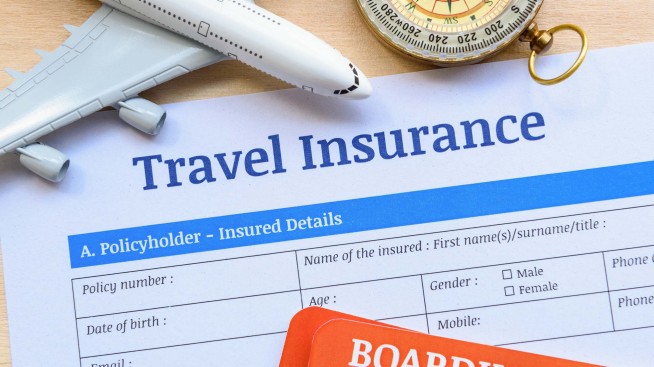How to pick an airline credit card

There are dozens of travel credit cards available in the marketplace. With a thorough understanding of your spending and travel behaviors and a willingness to shop around, you can pick the best airline credit card for your financial situation.
What's the difference between airline credit cards and general travel credit cards?
There are a variety of travel credit cards available for different kinds of spenders — and different travel needs. To pick the right travel credit card, you should first figure out what you want from a card, then narrow your choice among the available options.
Airline credit cards
Airline credit cards are tied to a specific air carrier — meaning that their rewards are in the form of miles for one carrier. At the same time, airline credit cards typically offer bonus rewards miles for purchases made with their linked airline. If you travel often on just one airline, an airline credit card can be a great choice.
Pros of an airline credit card:
- Airline cards help you accrue miles more quickly. Most airline credit cards offer at least 1 reward mile per dollar spent on everyday purchases. Many airline cards give even more in rewards miles, especially for purchases made with that airline or one of its partners.
- Airline cards often offer travel perks. Priority boarding, free checked bags, higher loyalty status: airline credit cards offer these things and more. For frequent travelers or those who enjoy the good life when they travel, an airline card will provide lots of appealing amenities.
- Airline cards may get you to a higher loyalty status tier. Some premium airline credit cards include an automatic bump to higher airline loyalty program status. A higher status can mean better seats when you fly, early boarding, or free checked bags.
Cons of an airline credit card:
- Airline cards often have an annual fee. Many airline cards charge an annual fee of about $100, and premium airline cards can charge hundreds more.
- Airline cards offer rewards in the form of miles. Accruing more rewards miles is great if you travel frequently — or have family members to whom you can gift your miles. If you don't travel often, though, miles may be less valuable to you than cash rewards.
- Airline cards are tied to just one airline. Most air travelers shop around for the best deal each time they book. With an airline credit card, however, you get the most rewards by booking with just one airline.
Who an airline credit card is best for:
Airline credit cards are best for frequent travelers on one airline — or people whose nearest airport is served primarily by a single airline. While airline cards offer many travel perks, their rewards structures tie you to their linked airline. That can be limiting if you tend to shop around for deals when you travel.
General travel credit cards
General travel credit cards offer rewards in the form of points or miles. With a general travel card, you can expect to earn bonus rewards on hotel stays and air travel, as well as earning on everyday purchases.
Pros of a general travel credit card:
- General travel cards usually earn rewards for all kinds of travel activities. With an airline card, you get rewarded for your spending on air travel. But general travel credit cards earn points or rewards for many different kinds of travel expenditures: plane tickets, hotel stays, car rentals, and more.
- General travel cards' rewards can be used in different ways. You can typically redeem a general travel card's rewards points with hotels, airlines, cruise operators, and many other travel companies.
- General travel cards empower those who shop around. Because their rewards systems aren't tied to just one airline, general travel credit cards benefit those who like to keep their options open. With a general travel card, your travel purchases earn rewards/points — no matter which travel option you choose.
Cons of a general travel credit card
- General travel cards' rewards may be less generous than airline card rewards. While general travel credit cards do reward many different kinds of travel, you might not get the same level of rewards as you would with an airline card: for example, 2X points on air travel instead of 3X points.
- General travel cards may not offer the same perks as an airline card. Some premium general travel cards do include perks like lounge access and priority boarding.
- General travel cards may require you to book travel through the card's booking portal. The points you receive on your general travel card can be redeemed on many different kinds of travel activities, but your only redemption option may be a portal owned by the card issuer. This booking format is less flexible than paying with cash and may include blackout dates to restrict your booking options.
- General travel cards, like airline cards, may charge an annual fee. It's important to compare different card options to note any annual fees they may have.
Who a general travel credit card is best for:
A general travel card is best for frequent travelers, or those who spend a lot on activities and experiences, and aren't loyal to one particular airline. Different travel cards have different rewards partners — so be sure to shop around to find the card that meets your needs.
How to choose the best airline credit card
If you're committed to getting an airline credit card, consider the following tips to make the most informed choice.
- Map your spending habits. Where do you spend money? Is your spending concentrated on a few merchants, or spread around in many different categories? The better you know your money habits, the better equipped you'll be to identify a card that rewards your spending.
- Identify which travel perks you want or need. Travel credit cards — both airline cards and general travel cards — often offer travel perks. Some of these, like lounge access, may be worth the higher annual fee of a premium card — but you have to identify which perks you truly value.
- Do your research. Spend time investigating your airline card options. If you live near an airport that's served by multiple airlines, consider flying with a few of them to see which one you like best.
- Crunch the numbers. Between rewards miles, new card member bonuses, often referred to as sign-up bonuses, annual fees, and special offers like companion certificates, picking an airline card can be confusing. Consider putting together a spreadsheet that calculates how much you'll spend (or save) with each option.
Do I have to be a frequent flyer to have an airline credit card?
Airline credit cards can be useful for any traveler — but you'll benefit from airline cards the most if you are a frequent flier or value travel perks like priority boarding. Track how you spend and consider what rewards you want from your credit card. Airline card rewards are highly specific to air travel, so they may not be the best choice if you don't take to the skies often.



